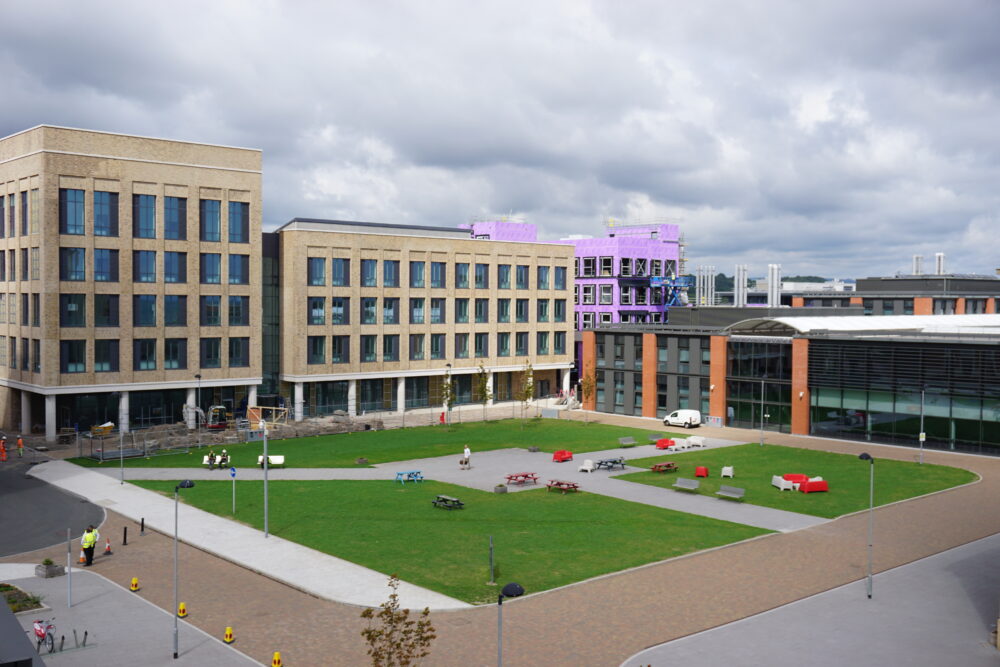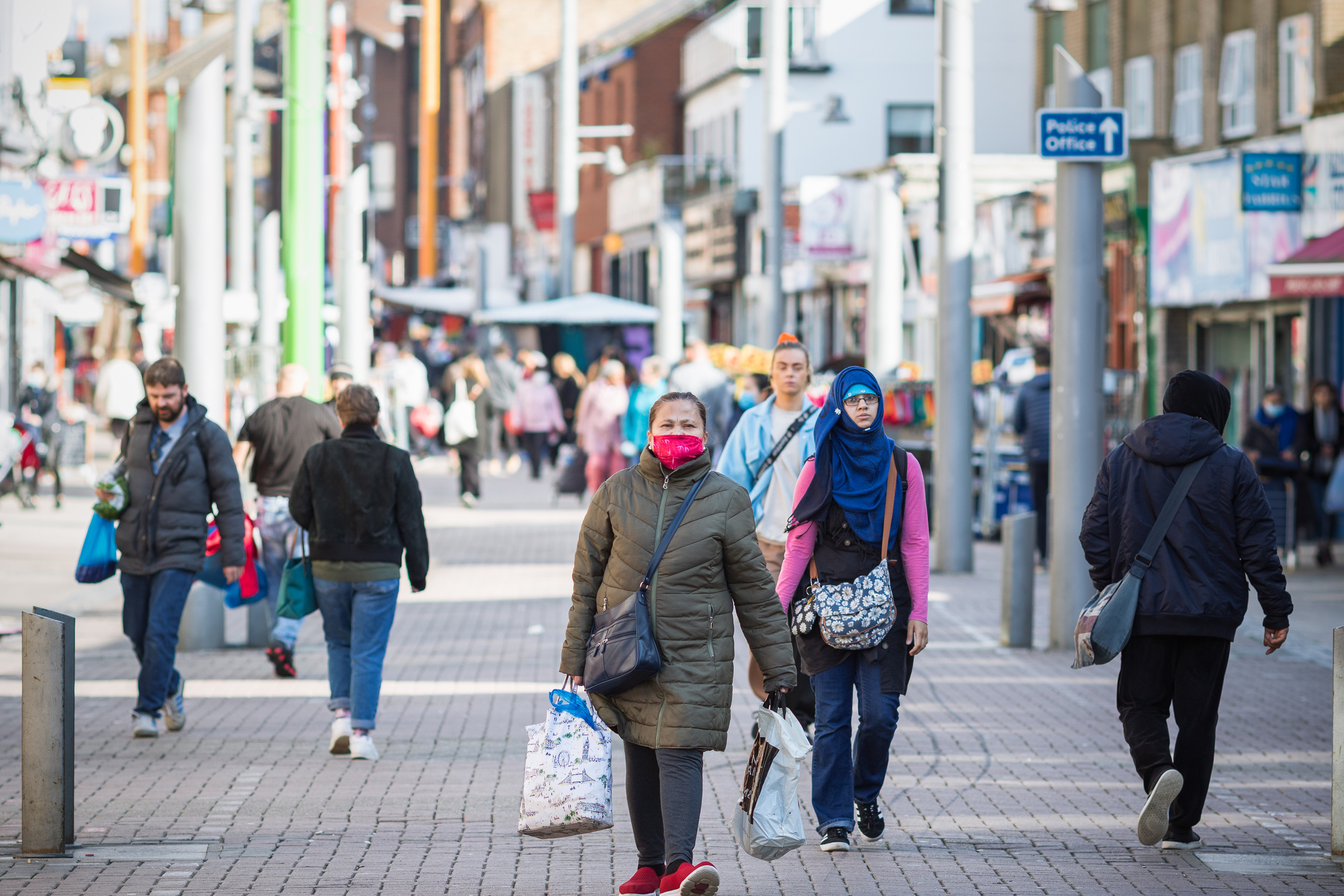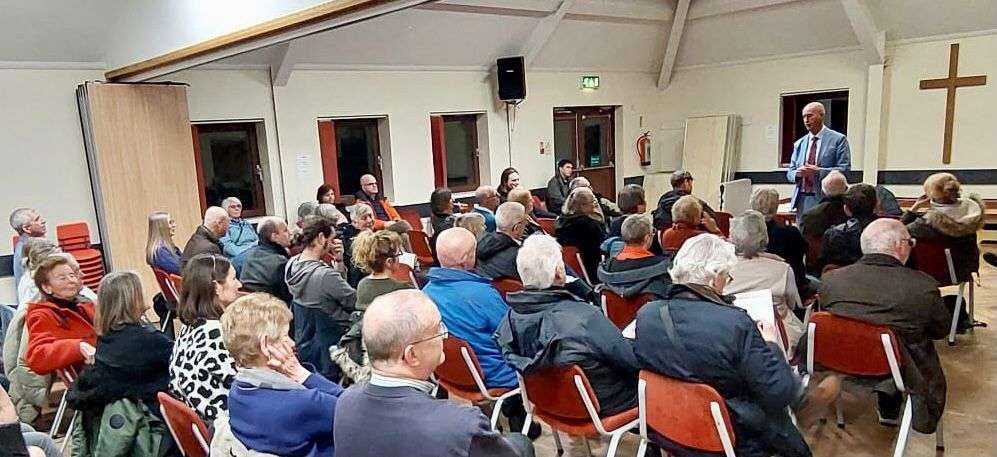The special event showcased the new edition of Professor Christopher Meredith’s Shifts, which draws on his experience of Ebbw Vale Steelworks to portray the decline of the steel industry in fictionalised versions of its surrounding communities and the life of the working class in 1970s South Wales.
First published in 1988, this classic novel was recently reissued as part of the Library of Wales Series, a Welsh Government initiative designed to ensure that the rich and extensive literature of Wales written in English is available to readers in and beyond Wales.
To explore the connection between steel and the local community, Swansea University’s Cultures and Communities Research Institute, with support from the Local Challenges Research Office, hosted an event in Port Talbot’s historic Plaza.
Christopher Meredith, Emeritus Professor of Creative Writing at the University of South Wales, began his talk by offering solidarity with the people of Port Talbot and the steel community on behalf of the Steering Committee of the Society of Authors in Wales.
The Tredegar-born author then read a collection of extracts before giving the audience an exclusive insight into the shared history of himself and his critically acclaimed novel.
Professor Meredith said: “For me, from a steelworker background, this was a moving event. Novels can apprehend with intensity the real through the imaginary – I’m lucky that a book I wrote forty years ago can still resonate, and the sense of warmth, intelligence and connection in The Plaza was palpable. To speak and especially to listen in Port Talbot at a crucial time for this great town was a huge privilege.”
Professor Kirsti Bohata, from the Department of English Literature and Creative Writing at Swansea University, led the event.
She said: “Shifts is one of the greatest novels ever written about Wales, and it was a privilege to hear people who have worked in the steel industry in Port Talbot immediately connect with it.
“The purpose of the Library of Wales series of English-language classics is to make Wales’ literary heritage widely available, and this event shows how meaningful that can be.”
The event also featured Professor Louise Miskell from the School of Culture and Communication, who spoke on the profound history and significance of the steelworks in the twentieth century.
Professor Miskell highlighted three key dates in the town: 1918, 1951, and 2001, to show the ever-changing nature of the steel industry and public perceptions.
She said: “Port Talbot has a long and distinguished history as a steel town, but in the current climate of uncertainty, this history is all too easily overshadowed. For me, this event was all about revisiting some of the pivotal moments of the last one hundred years, when steel-making most closely defined Port Talbot’s sense of place and identity.”
Attendees included former and current steelworkers, members of local history societies and heritage groups, and relatives of steelworkers, who shared reflections on the industry’s impact on their families and accounts of the continued emotional connection the town has with the steel industry.
Professor David Turner, Director of the Cultures and Communities Research Institute, said: “Swansea University’s new Research Institute for Cultures and Communities was proud to support this event, which demonstrated powerfully the role of steel manufacturing in shaping the identity of Welsh communities such as Port Talbot and Ebbw Vale.
“Steelmaking has not just shaped this region’s social and economic life; it is part of its cultural DNA, too. In the current climate of change and uncertainty, it is important that the history of the impact of steelmaking on the cultures and communities of industrial South Wales is not forgotten.”
Please donate here: Support Carmarthenshire News Online Thank you for supporting independent journalism and contributing to the future of local news in Carmarthenshire. Carmarthenshire News Online has been dedicated to providing unbiased and trustworthy news, free from commercial or political influence. By donating as little as £1, you can help ensure the continuation of this important source of information for the community. Your contribution will have a significant impact on the sustainability of independent journalism. If you're looking to enhance your brand's visibility, we also offer advertising opportunities on our Livestream and podcasts. Our special offers provide excellent value for reaching our engaged audience. To learn more about these opportunities and to discuss your advertising needs, please feel free to call or text us at 07308598604. Thank you again for your support, and together we can ensure the availability of quality local news for Carmarthenshire and beyond.
Please donate here: Support Carmarthenshire News Online







